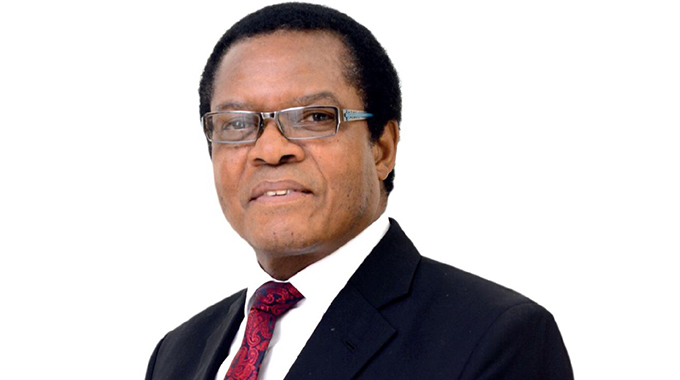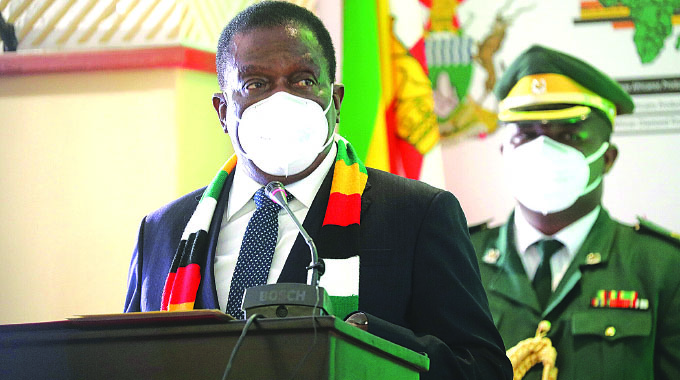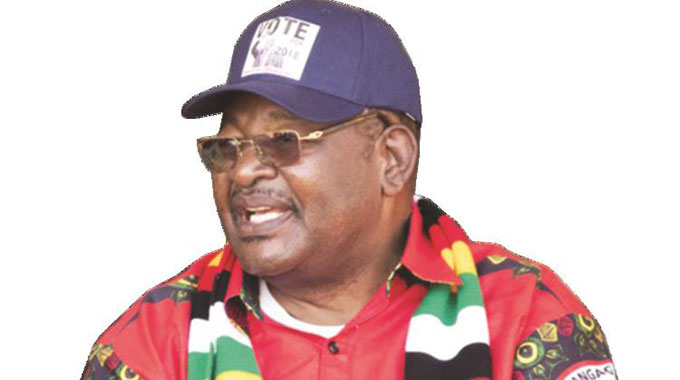EDITORIAL COMMENT: More needs to be done to improve O’ Level pass rate

The improvement in pass rates for O’ Level in the examinations at the end of last year and the beginning of this year over the results for the 2020 exams is doubly praiseworthy, since those who wrote faced two years, not just one year, of curtailed schooling during the waves of Covid-19.
So reaching a pass rate of 26,34 percent on subjects and with 27,35 percent of those who wrote five or more subjects managed to achieve at least five passes at grade C or better.
In other words a full O’ Level certificate, shows that schools, teachers, parents and most importantly a lot of the children managed to overcome the serious problems faced.
The pass rate was just 5 percent below that in the last normal year, 2019, when 31,6 percent of subjects written reached the passing grade. So the results were a specially solid achievement and those who did well need to be specially congratulated.
But we now need to look seriously at our entire secondary education system, and start thinking about those who do not pass O-level and probably may never pass. They are the majority and they do not need to be permanently condemned as second rate, and do not deserve to be.
More is being done to improve pass rates, such as providing more resources to schools and lowering the teacher-to-pupil ratio, and that will help. Covid-19 showed that parents can be more active, and that helped and can continue to help. These moves and improvements must be continued and expanded.
But that does not alter the fact that O’Level was not intended for everyone. In the old days, before the dramatic expansion in secondary education just after independence, pass rates were very high.
This was simply because there was special selection, at least for the majority, and if you only allow the academically gifted to be taught O’Level and to write O’Level you will obviously have classes that do exceptionally well, even if schools are under-resourced and classes are very large.
The problem was not the switch to universal secondary education. That was high desirable and was a human right. Guaranteeing every child four years of secondary education was not just politics but a serious effort to address the gross unfairness of the past and to give every child equal opportunities.
But in all fairness those four years must also prepare all children for their future, and not just divide the most academically gifted from the rest, with the rest generally allowed to fend for themselves while the academics continue to climb the ladder to A’Level, college and university, or at least put themselves in line for a reasonable job.
There was another example at independence, the old white school system. Because only a small fraction of the population were meant to run the country and dominate the skilled employment, obviously the settler regimes wanted to make sure their children obtained those skills, so the education system was built around that need.
So white children were divided into three groups based on academic achievements. The top third shot through O’Level in four years and almost all passed, with provision for repeating their fourth year if they did not. This fits in with the normal pass rates we have been seeing in recent years of close on a third.
The middle group sat for a lower level and more practical exam at the end of Form Three and then carried on for two more years of O’Level.
That extra year helped a lot, although pass rates were not magnificent, but in the end around half the white kids got O’Level.
The third group of children never really attempted O’Level. They spent four years, five if they needed them, getting the lower level and more practical certificate although someone wrongly placed could then carry on to O’Level.
An extra wrinkle in the minority system was to have a second certificate based on O’Level, the school certificate, that counted a D at O’Level as a pass, with a C and above being a distinction, and that gave admittance to a fair range of technical training.
Two critical points need to be noted. First all the white children went to the same school. There were no F2s such as were put in place for the majority. No one was separated out very early.
The second point was that almost everyone came out of high school with something that allowed them to continue training, not just the golden group carrying on to university.
Many countries use a multi-pronged approach, some through sending children to different schools, which educationalists now frown strongly upon, or through using multiple examinations, or through complex grading of a single examination.
The point being that when you leave school your education continues in the most appropriate way and you continue acquiring skills.
All of this is complex to sort out and to gain popular acceptance, but we need to start looking hard into what children need, not so much their parents, and ensuring that the years they spend in secondary education are not, for a majority, just keeping them off the streets.
Already we have started opening a lot more vocational colleges and centres and we can go a lot further with this, especially if more youths going into these have a sounder basic high school education with the fundamentals solidly taught so they can more easily grasp the practicalities of vocational training, which includes the theory behind the practical.
Our emphasis in recent years to make sure everyone going through the educational system, and that includes those speeding to university, have a far more solid set of practical skills and are able to solve practical problems, not just pass exams, is a good start.
Skilled people, regardless of their O’Level results, earn a decent income either working for themselves or working in industry.
To take just one example, when we need decent plumber we do not ask for the certificates; we ask around to find someone who can unblock a drain or replace a pipe and pay the bill they present.
Our secondary education system needs to do more than divide our youths into those who pass O’Level and those who do not. It must prepare all children to gain skills both at school and after school so they can earn a decent living, and if that can include certification for what they have learned at school, as well as what they have achieved in more advanced training, so much the better.











Comments